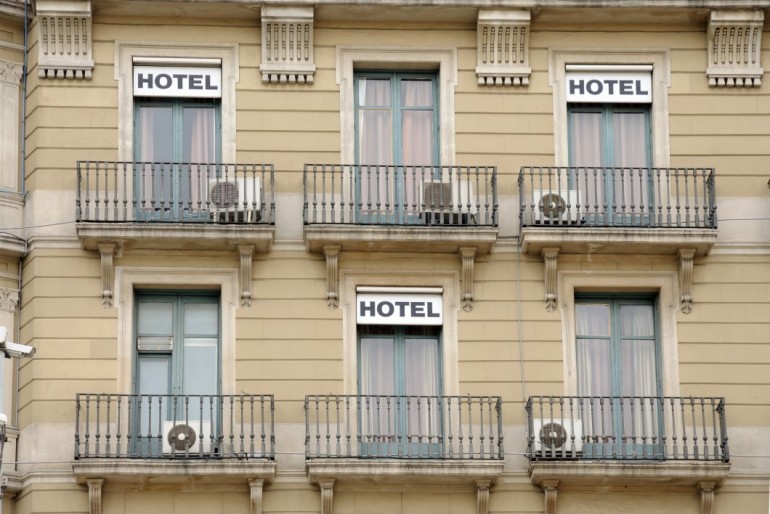Sponsored Listings:
The last twelve months have been an acid test for the Catalan tourism sector, which has been forced to face challenges that no destination would like to experience. From terrorist attacks, to the political instability as a result of the ‘pro-independence movement’ of the Generalitat, and now dealing with the recovery of other competing destinations, such as North Africa and the Near East.
The international focus on the country during the last year has resulted in several news and articles that affected the international image of Barcelona as a tourism brand and the autonomous community as a whole.
Before this situation and the drop of reservations for the summer season, the Gremi d’Hotels de Barcelona (a hotel association) lowered its occupancy forecasts by five points for the months of July and August, going from an average of 85% in 2017, to 80% for 2018. The decline in occupancy forecasts also occurs in a context of generalized price reductions for hotel establishments in Barcelona, which reduced the amount of overnight stays by 4.3% on average during the first quarter of the year, reaching 132.75 euros.
Greater impact on luxury reservations
As a result, the revenues per available room were also reduced by 7.2% between the months of January and June 2018. Hotel managers highlighted the drop in turnover in the higher category establishments, which was estimated at 10% in the first semester, although in certain luxury hotels the impact on revenue was 40%.
Jordi Clos, president of the hotel association, regretted that quality tourism is the most affected segment in Barcelona, which is particularly sensitive to political instability and insecurity. Above all, this phenomenon can be witnessed in the decline in tourism in destinations that have lived through political turmoil and terrorist attacks in recent years; such as the case of the Maghreb and the Eastern Mediterranean region. To be exact, the progressive recovery of these competing tourist destinations is having an influence on the reservations of the Catalan tourism sector during the summer season.
On the other hand, Clos considered that the political instability in Catalonia is another element that increases the number of obstacles that the hotel sector will have to face during the summer. However, the greatest fear of the hotel association is the long-term effects of the ‘Catalan procés’, especially due to a possible future drop in demand for rooms linked to organization of congresses, meetings, and business events in the city.
Clos admitted that the Catalan capital continues to attract tourism as a destination for international fairs, but he recalled that this Catalan tourism pull factor is mostly due to the excellent work done by Turisme de Barcelona (a public-private consortium) during the last years, and that right now “the seeds are being planted”, and the city will collect the fruit of that labor over the next few years. Similarly, hotel managers regretted the massive exit of companies to other Spanish regions, which has caused Barcelona to stop being the host for board of directors meetings as well as stockholders meetings for large companies that were traditionally held in the city.

Acts of vandalism
At the beginning of July, Arran (the youth organization for the Candidatura d’Unitat Popular, or CUP), attacked a tourist bus that was in the Olympic Port of Barcelona, and placed a banner on the vehicle denouncing the “tourism massification” in the city. The act resembled another one that previously caused an alarm in the city last summer, when Arran militants also deflated the tires of another tourist bus and destroyed its windshield. Merchants, hotel managers and owners of tourist apartments in Barcelona condemned this type of vandalism because it damages the already battered image of the city, and regretted that the Ada Colau City Council has become an accomplice of these violent events with its ‘anti-tourism speech’.
The ‘Airbnb formula’ is a success
Tourist apartments in Barcelona are the ones that expect to be the less affected by these unfavorable tourism conditions in the Catalan capital throughout the summer. According to the business association APARTUR, the estimate of average occupancy for tourist apartments will be over 90% until the end of August, after a couple months that have seriously impacted this sector, which has reported losses of up to 15% in turnover due to the political instability.
Source: tourism-review.com










